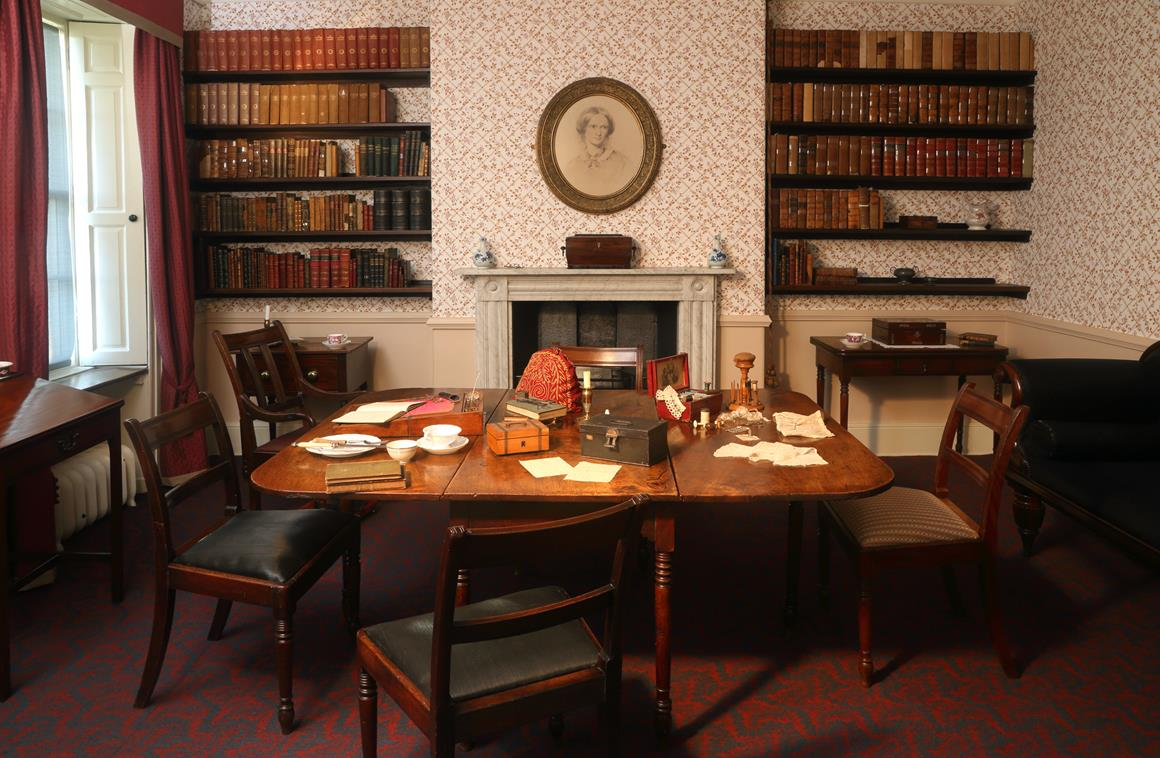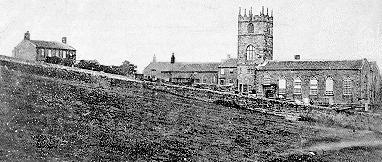A reaction from Anne It was Kelli B. Trujillo, in the original article that said
It was Kelli B. Trujillo, in the original article that said
( Gaskell, who was a Unitarian, further skews Bronte’s beliefs as she interprets them through her own less-than-orthodox theological lens.)
I said
The reaction of Anne makes me wonder about Elisabeth Gaskell and Unitarisme.
 It was Kelli B. Trujillo, in the original article that said
It was Kelli B. Trujillo, in the original article that said( Gaskell, who was a Unitarian, further skews Bronte’s beliefs as she interprets them through her own less-than-orthodox theological lens.)
I said
Few also seem to ponder if Mrs G 's attack on Patrick Bronte was in part an attack on the Established church itself...I think that has to be considered. People don't know how bitter the dispute between different groups was.
|
Gaskell and Unitarianism:
During her formative years Gaskell had been brought up amongst Unitarians of a Priestleyan cast. These included Turner, Robberds, and her husband. These "old school" Unitarians believed in a deterministic—called by Priestley "necessarian"—universe in which human error inevitably led to suffering, and suffering infallibly brought about reconciliation with God. The plots of her more serious novels conform to the necessarian pattern, sometimes apparently compromising the logic of her social messages. In a crucial scene in North and South she depicts three people, an Anglican, a Dissenter, and an "infidel," kneeling together in mutual tolerance and reconciliation. According to scholar R. K. Webb, "Mrs. Gaskell's Unitarianism is not to be found in her characters but in the dynamics of her narratives and in her comments upon her characters' actions." Not wishing to be identified as a "Unitarian novelist" as this would severely limit her readership, Gaskell was careful not to tell her stories in explicitly Unitarian terms. In her personal letters, however, there are many clear expressions of her religious opinions and affinities. In a letter to her daughter Marianne she wrote, "one thing I am clear and sure about is this that Jesus Christ was not equal to His father." Gaskell preferred devotional to doctrinal preaching. About doctrines, she wrote to Charles Eliot Norton, "I am more and more certain we can never be certain in this world." She rejected "dogmatic hard Unitarianism, utilitarian to the backbone" and protested that she was not "(Unitarianly) orthodox!" See wrote a friend how she had tried to avoid seeing James Martineau, whom she did not like personally and whose "new school" Unitarian theology differed from her own. Gaskell frequently attended Church (Anglican services) as well as Chapel. She enjoyed the spiritual feeling of the high church service. "I wish our Puritan ancestors had not left out so much that they might have kept in of the beautiful and impressive Church service," she confided to Marianne. "But I always do feel as if the Litany—the beginning of it I mean,—and one or two other parts did so completely go against my belief that it would be wrong to deaden my sense of its serious error by hearing it too often." In Gaskell's estimation, true Christianity was not to be found in organized denominations nor in liturgy nor in theology. She believed and acted on a religion of works, "the real earnest Christianity which seeks to do as much and as extensive good as it can." Local action for change by those most intimately concerned, not government legislation, was her solution to social problems. Those who have should help those who have not. For her such charity began at or near home. She took her motto from Thomas Carlyle, "Do the duty that lies nearest to thee." Unitarian rationalist feminist journalist Frances Power Cobbe, after reading a story by Gaskell, wrote, "it came to me that Love is greater than knowledge—that it is more beautiful to serve our brothers freely and tenderly, than to hive up learning with each studious year." The originals of Elizabeth Gaskell's surviving correspondence are scattered in many collections throughout Britain and America. They have been gathered and issued in print, however, in J.A.V. Chapple and Arthur Pollard, editors, The Letters of Mrs Gaskell (1966). The Knutsford Edition, The Works of Mrs. Gaskell, edited by A.W. Ward (1906), 8 volumes, is the most complete edition of Gaskell's works. It does not, however, include The Life of Charlotte Brontë. Gaskell's novels and Charlotte Brontë are readily available in many editions, notably those issued by Penguin and Oxford University Press. Works not mentioned above include a set of serialized stories, My Lady Ludlow (1858); an historical novel, Sylvia's Lovers (1863), and a short novel, Cousin Phillis (1864). Among Gaskell's short stories are "The Poor Clare" (1856), "Lois the Witch" (1859), and "The Grey Woman" (1861). These and some others are collected in Laura Kranzler, editor, Gothic Tales (2000). The contemporary critical response to Gaskell has been compiled by Angus Easson in Elizabeth Gaskell: The Critical Heritage (1991). Two valuable recent biographies of Gaskell are Winifred Gérin, Elizabeth Gaskell, a Biography (1976) and Jenny Uglow, Elizabeth Gaskell: A Habit of Stories (1993). Coral Lansbury, Elizabeth Gaskell, the Novel of Social Crisis (1975) and Angus Easson, Elizabeth Gaskell (1979) are works of criticism with a strong biographical emphasis. Easson has a treatment of Gaskell's Unitarian background and beliefs. More theologically sophisticated, however, is Robert K. Webb, "The Gaskells as Unitarians," in Joanne Shattock, Dickens and Other Victorians (1988). There are shorter treatments of Gaskell in Concise Dictionary of British Literary Biography, Vol. 4: Victorian Writer, 1832-1890 and in Ruth Watts, Gender, Power and the Unitarians in England, 1760-1860 (1998). The fullest treatment of Gaskell's husband is Barbara Brill, William Gaskell, 1805-1884 (1984). The story of her relationship with Charles Dickens is briefly told by Sally Ledger in Paul Schlicke, editor, Oxford Reader's Companion to Dickens (1999).
elizabethgaskell
wiki/Unitarianism
elizabethgaskell
wiki/Unitarianism



Thank you , Geri!!
BeantwoordenVerwijderenBut it was Kelli B. Trujillo, in the original article that said
( Gaskell, who was a Unitarian, further skews Bronte’s beliefs as she interprets them through her own less-than-orthodox theological lens.)
I said
Few also seem to ponder if Mrs G 's attack on Patrick Bronte was in part an attack on the Established church itself...I think that has to be considered
People don't know how bitter the dispute between different groups was! Thank you for highlighting this topic!